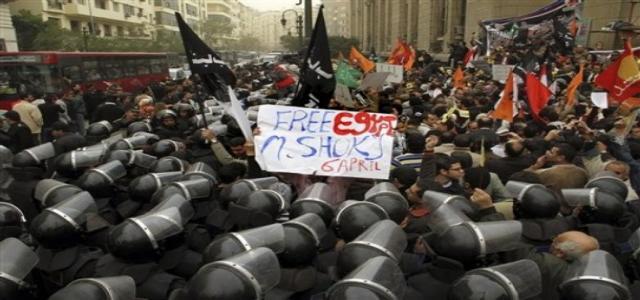- 2010 election updateOther OpinionsWikileaks
- December 14, 2010
- 15 minutes read
Egypt – Pawn in a Losing Game?

The Middle East is turbulent. In the midst of war, threats of war and oppression, the Egyptian election took place and it was marred by voter intimidation, fraud, and a series of violent incidents. At any other time, the US would step in, invade, takeover, dictate, and impose freedom and democracy, except this time, the country was not an enemy of the state (the US ) but its closest ally in the region, Egypt .
Mubarak, along with his nation, is spiraling downwards towards collapse with a 9.4 percent unemployment rate, high inflation, and a stagnant government pretending to be democratic. If this happens it would be dangerous for both Egypt and US interests.
Obviously concerned about destabilizing the Middle East, – and recognizing Egypt’s strategic role in the region, the US secures Egypt’s support, particularly the Israeli-Palestinian peace process, by sending more than $1.3 billion annually while ignoring Egypt’s pervasive corruption, human rights violations, and decades of election rigging. However, the fraud and violence surrounding Egypt’s parliamentary elections even shocked those who were expecting the NDP’s electoral scam while the US responded lamely, merely expressing ‘concern’ about the polls. The same country (the US ) that dethroned Saddam Hussein and invaded Iraq and is pouring mega-bucks into the regime, is now turning a blind eye to human rights violations and a totalitarian regime that makes a mockery of democracy even though it calls itself the National Democratic Party.
Continuing to play the game, Mubarak gives the US an ultimatum: to either support him (the corrupt autocratic ruler) or the Muslim Brotherhood which Mubarak presents as a rising Islamic extremist power. With scare-mongering down to a fine art and with the communist threat having retreated into history, Mubarak makes use of the internationally perceived new threat; Islam, and in Egypt Islam is represented by the Muslim Brotherhood.
Mubarak’s reign may appear unchallenged but moderates are getting fed up trying to live in a police state and more and more people are tired of enforced poverty, living on less than $100 a month.
The double talk continues as Egypt boasts of playing the role of peacemaker in the region, especially concerning Palestine, but according to a cable distributed through Wikileaks, the Qatari Prime told Senator John Kerry that “Egypt has a vested interest in dragging out Palestinian reconciliation talks for as long as possible. Egypt has no end game; serving as broker of the talks is Egypt ‘s only business interest with the US .”
In another Wikileaks cable, Margaret Scobey, the US ambassador in Cairo reports to Secretary of State Hillary Clinton that, “Mubarak hates Hamas and considers them the same as Egypt’s own Muslim Brotherhood, which he sees as his own most dangerous political threat.”
Seeking to challenge Mubarak’s iron-fist rule, Dr. Mohamed El-Baradei returned to Egypt intending to develop a grass-roots movement powerful enough to take on Mubarak’s NDP. El-Baradei, not motivated by desire for leadership, genuinely wants to see his country shift toward democracy.
With the chance to run for the presidency right now in the hands of only a handful of people, there needs to be changes made to the constitution that was amended in 2007 to keep power within the NDP. Without these essential changes that would ensure free and fair elections in Egypt , El-Baradei is not expected to run in the 2011 Presidential elections because of the likelihood of fraud and corruption.
Frustrated and fed up, the Egyptian people are responding to calls for rallies organized by El-Baradei to protest police brutality. The game has been going on for some time, but who will win, who will lose is unknown and stagnation eventually wanes and gives way to change. El-Baradei, like the Muslim Brotherhood, has won the hearts of the Egyptians and their trust.
The US has missed its chance to correct the dreadful state of affairs in Egypt at the time of the elections that were clearly rigged by Mubarak’s NDP. The real divisions that exist in the region are now seeing the light of day as Wikileaks, along with the sham 2010 elections, have highlighted the real motivations of rulers, created more unrest among the Egyptians, and intensified the struggle for peaceful change. If peaceful means of change fail, – and the current chaos escalates – the likelihood of regional conflict greatly increases, leaving the US – with its presence and investment in the Middle East – with no option but to intervene.
Ideally, democracy is best done when it comes from within with a smooth rotation of power, but when autocrats hold onto their power until the bitter end, any change is very likely to come on the tail of chaos



